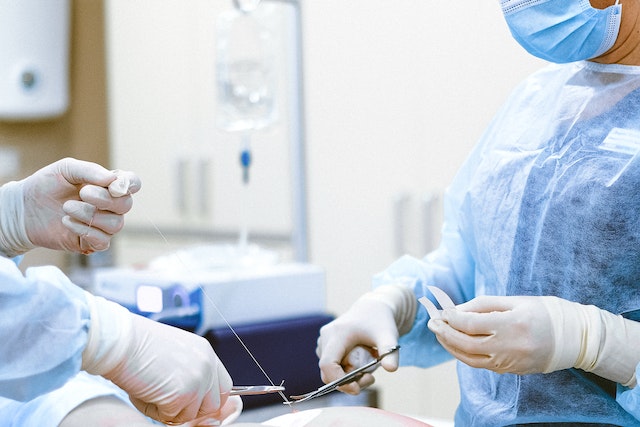Introduction: Surgery is a complex and high-stakes field that presents surgeons with a constant dilemma: how to balance the risks, rewards, and responsibilities associated with their profession. Surgeons face the challenge of making critical decisions, navigating uncertainties, and ensuring patient safety while aiming for successful outcomes. This article delves into the multifaceted nature of the
Introduction: Surgery is a complex and high-stakes field that presents surgeons with a constant dilemma: how to balance the risks, rewards, and responsibilities associated with their profession. Surgeons face the challenge of making critical decisions, navigating uncertainties, and ensuring patient safety while aiming for successful outcomes. This article delves into the multifaceted nature of the surgeon’s dilemma, examining the various factors involved and the ethical considerations inherent in their role.
- Assessing Risk: a. Clinical Judgement: Surgeons must assess the risks and benefits of surgical interventions based on the patient’s condition, medical history, and available evidence. Balancing the potential benefits against the inherent risks is crucial in determining the appropriateness of surgery.
b. Informed Consent: Providing patients with accurate and comprehensive information about the risks and potential outcomes of a surgical procedure enables them to make informed decisions. Surgeons must ensure that patients understand the potential risks and actively participate in the decision-making process.
c. Surgical Complexity: Surgeons often encounter complex cases where risks may be higher due to factors such as patient comorbidities, anatomical challenges, or limited treatment options. Navigating these complexities requires careful consideration of the potential benefits and risks involved.
- Managing Rewards: a. Patient Outcomes: Surgeons strive for positive patient outcomes, aiming to alleviate suffering, improve quality of life, and restore health. Successful surgeries and positive patient experiences provide professional satisfaction and fulfillment.
b. Professional Growth: Surgeons pursue continuous professional development, refining their skills, and adopting innovative techniques. Advancements in surgical knowledge and technology offer opportunities for growth and professional recognition.
c. Peer Recognition and Reputation: Surgeons often value recognition from their peers, reputation within the medical community, and patient referrals. These rewards contribute to professional standing and career advancement.
- Ethical Responsibilities: a. Beneficence and Non-Maleficence: Surgeons have a fundamental ethical responsibility to act in the best interest of their patients (beneficence) and avoid harm (non-maleficence). Balancing the potential benefits of surgery with the risks involved is essential in fulfilling these ethical obligations.
b. Informed Decision-Making: Ensuring that patients have accurate information, understand the risks and benefits, and actively participate in decision-making upholds the principles of patient autonomy and informed consent. Surgeons must facilitate a collaborative approach, considering patients’ values and preferences in surgical decision-making.
c. Continuity of Care: Surgeons have a responsibility to provide appropriate preoperative assessment, surgical expertise, and postoperative care. Coordinating with multidisciplinary teams, managing complications, and ensuring proper follow-up contribute to optimal patient outcomes and continuity of care.
- Managing Uncertainty: a. Clinical Judgment and Experience: Surgeons draw upon their clinical judgment and experience to make decisions in situations where uncertainties exist. Assessing risks, considering alternative approaches, and seeking consultation when needed are essential in managing uncertainty.
b. Open Communication: Surgeons should communicate openly with patients, acknowledging uncertainties and discussing potential outcomes and complications. Maintaining transparent and honest communication helps manage expectations and build trust.
c. Learning from Mistakes: Recognizing that surgical outcomes are not always predictable, surgeons must embrace a culture of continuous learning. Analyzing surgical errors or complications, conducting peer reviews, and participating in quality improvement initiatives contribute to ongoing professional growth and improved patient care.
Conclusion: The surgeon’s dilemma encompasses the delicate balance between risk, reward, and responsibility in the field of surgery. By carefully assessing risks, managing rewards, upholding ethical responsibilities, and effectively navigating uncertainties, surgeons strive to provide the best possible care to their patients. By embracing a patient-centered approach, maintaining open communication, and engaging in continuous learning, surgeons can navigate this complex dilemma, making informed decisions and upholding their professional and ethical obligations.

















Leave a Comment
Your email address will not be published. Required fields are marked with *